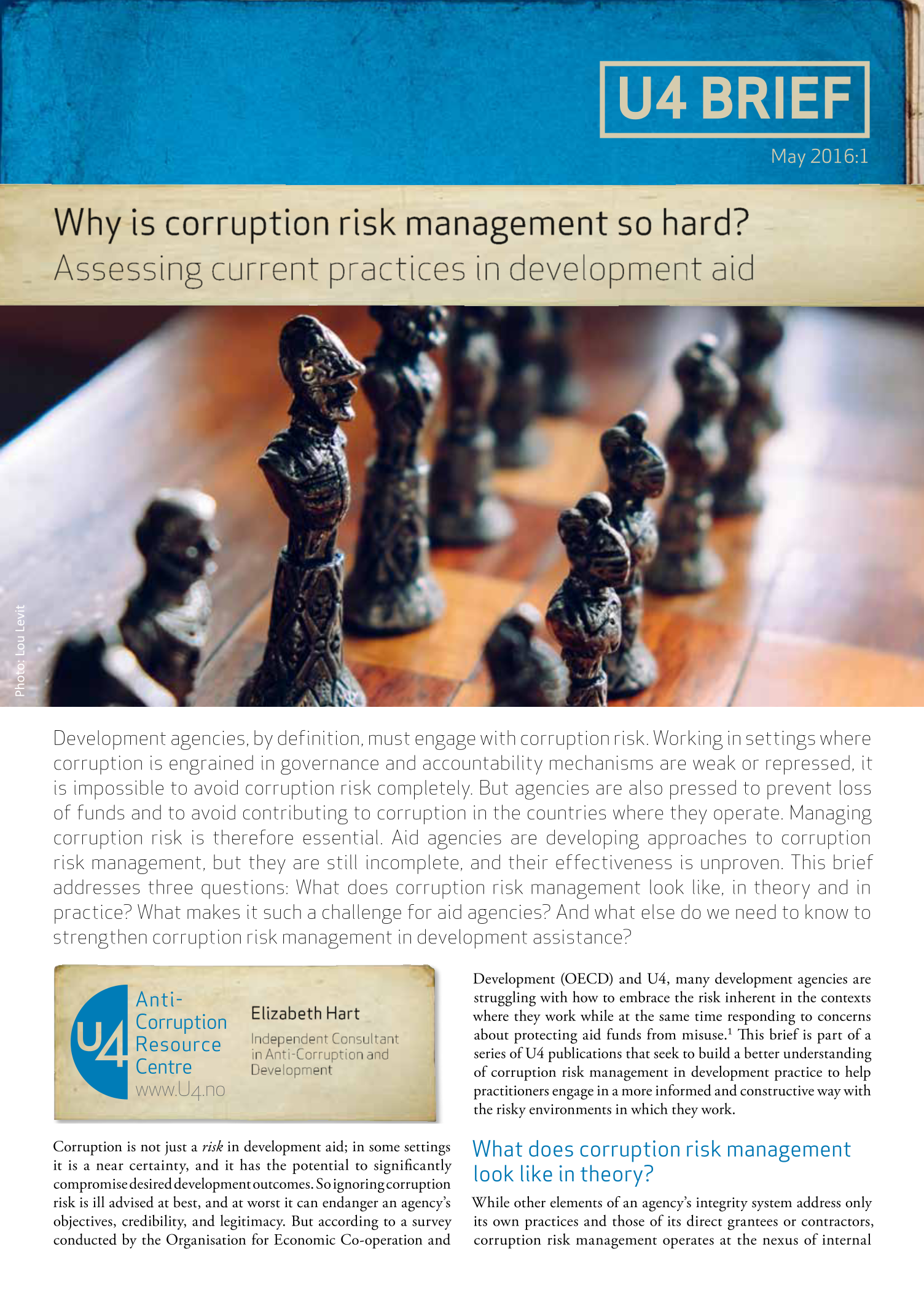U4 Brief
Why is corruption risk management so hard? Assessing current practices in development aid
Development agencies, by definition, must engage with corruption risk. Working in settings where corruption is engrained in governance and accountability mechanisms are weak or repressed, it is impossible to avoid corruption risk completely. But agencies are also pressed to prevent loss of funds and to avoid contributing to corruption in the countries where they operate. Managing corruption risk is therefore essential. Aid agencies are developing approaches to corruption risk management, but they are still incomplete, and their effectiveness is unproven. This brief addresses three questions: What does corruption risk management look like, in theory and in practice? What makes it such a challenge for aid agencies? And what else do we need to know to strengthen corruption risk management in development assistance?

Cite this publication
Hart, E. 2016. Why is corruption risk management so hard? Assessing current practices in development aid. Bergen: Chr. Michelsen Institute (U4 Brief 2016:1) 4 p
Disclaimer
All views in this text are the author(s)’, and may differ from the U4 partner agencies’ policies.
This work is licenced under a Creative Commons Attribution-NonCommercial-NoDerivatives 4.0 International licence (CC BY-NC-ND 4.0)

